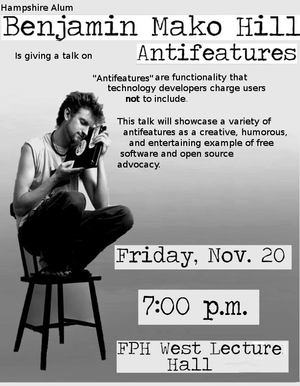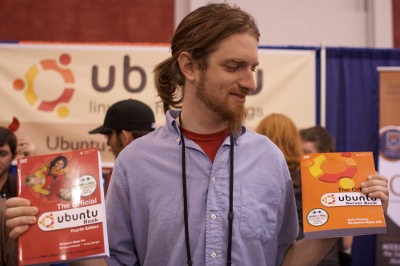An updated version of this article was published in the FSF‘s Fall 2009 members’ bulletin. Additionally, the article was translated into Spanish by Carolina Flores Hine.
If we’ve kept up with projections, by the end of this year, the world will be home to 3 billion mobile phones. That’s nearly one phone for every other living human being. Although these phones open up a world of important new opportunities in communication, creativity, and cooperation — and it’s important not to understate this fact — they also represent a step toward a sort of technological dystopia not unlike Stallman’s Right To Read. Phones represent one of the most locked-down, proprietary, and generally unfree technologies in wide distribution. The implications for software freedom and technological empowerment are dire.
But despite the fact that mobile phones represent what may be the greatest threat to software freedom today, the free software community has — with a number of notable exceptions that I want to both thank and draw increased attention to — been mostly silent on the issue.
I know passionate advocates of software freedom who work tirelessly to rid themselves and the world of a handful of binary blobs in the Linux kernel — important work that we all benefit from. And yet, even some of these "hardliners" don’t seem to hold their phones to their same standards as their laptops. Ubuntu’s decision to ship a new binary driver remains more controversial than the fact that the vast majority of the world’s computer using population knows nothing other than phone-based computers that remain almost unthinkably unfree and which remain almost entirely unfreeable when compared to personal computers. For most of the world’s computer users’, there is no option of, and essentially no hope for, freedom on their current devices.
It shocks me that anyone, especially free software advocates, would happily put up with such non-free computers.[1] I think part of the reason lies in the fact that most users of mobile phones, and even most phone users that care about software freedom and technological autonomy, don’t think of their phones as computers. Thinking that our phones as computers will not solve any of the problems I’ve alluded to. But doing so remains an essential first step toward any solution. Although we must still work to build viable, widely accessible, and compelling free phones, we must first convince both users and developers that this is an important goal. Reminding people that our phones, both free and non-free, are powerful general-purpose computers remains an important and still largely unfufilled part of this process.
We must find ways to remind ourselves and others of the fact that modern phones are powerful computers with powerful interfaces that are useful for a unimaginable variety of arbitrary applications. We must focus on the fact that these computers have microphones, sensors, and other sensors and that we trust them with our closest secrets and most sensitive data. We must not forget that, in almost all cases, these computers remain controlled, completely and ultimately, by companies that very few of us trust at all.
I’m not sure how we will accomplish this task. But more of us need to think long, hard, and creatively about this problem. I’ll be calling my phone "my computer" as a first, very personal, step. I have done this over the last week and it has led to some conversations with slightly confused acquaintances. Of course, this doesn’t make my phone any less free. But it does mean I’m talking more about the non-freeness most of us have put up with too silently. At this stage, that seems like progress.


